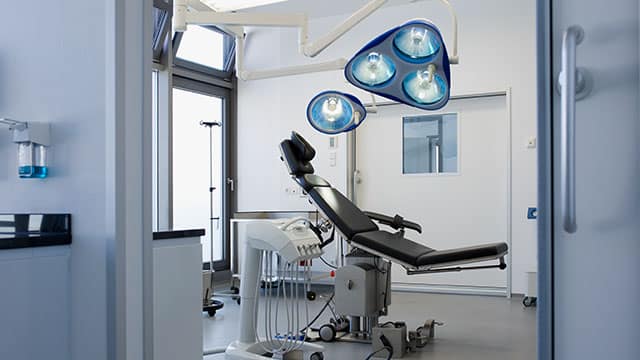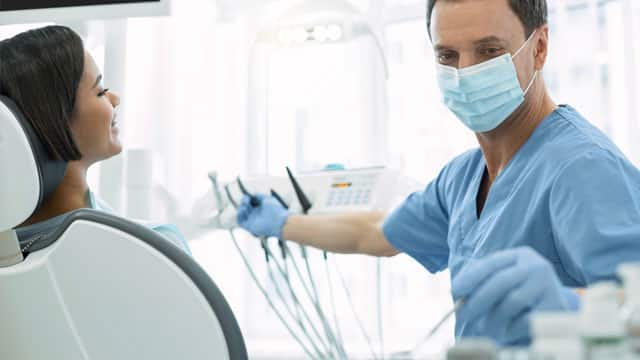What Is Medical Identity Theft?
Having your medical identity targeted can cause a frustrating number of problems in your life. According to Consumer Reports, thieves can use your stolen personally identifiable information to take medical services, equipment, or prescription drugs. It can also be used to access health benefits fraudulently or to sell on the black market.
According to the American Association for Clinical Chemistry, medical identity theft is a serious problem that can potentially damage your health. Because medical fraud can alter your medical records, there have been cases of actual bodily harm occurring as a result.
You may be a victim of medical theft if you receive:
- A bill or debt collection notice for medical services you never received
- Unfamiliar collection notices on your credit report
- A notification that you’ve reached the benefit limit for your health insurance
- Your medical records listing appointments you never attended or diagnoses you don’t have
- Unexplained bills for medical care or equipment
Who Is at Risk?
Anyone can be a victim of medical identity theft, though you’re more at risk if you don’t take steps to protect your personal information. Older adults may be more at risk for fraud, as it’s more difficult for them to avoid scams involving technology. There are other groups at risk: new mothers, people who have undergone surgery, and those with chronic health conditions.
The more you interact with the healthcare system, the greater the opportunity for thieves to take your information if you do not properly protect yourself.
Some helpful for preventing medical identity theft:
- Beware of anyone offering free medical services or equipment, especially if they ask for your health plan’s identification number.
- Don’t share medical, financial, or personal information on the phone with anyone you did not initiate contact with.
- Don’t share personally identifiable information with strangers or over social media.
- Keep any medical records or private information in a safe place or shred it when you’re ready to discard it.
- Read the privacy policy on websites, especially those that seem suspect or that you’re unfamiliar with.
- Ensure that sites start with “https:” for secure instead of “http:” in the address if you’re going to be filling in private information.
Steps to Ensure Your Safety
If you believe you’ve been the victim of medical identity theft, it’s vital to take steps to protect yourself and your identity. Many questions could be flying through your head. How does this happen? What should I do? We have some helpful steps on how to respond:
- Report the Theft:
Reporting the theft is a good first step to ensure you have the proper support and tools at your disposal.
- File a report with your local police department or where you think the theft occurred
- Notify your health insurance provider and the three credit bureaus
- Create a report with the Federal Trade Commission and receive help on a plan for recovery
- Medicare fraud can be reported to the Office of the Inspector General
- Gather Copies of Your Records:
You have the lawful right to access your medical records and discover who else has accessed them. Request copies of any relevant medical or financial records to organize and help with any reports.
It can be frustrating to reach out to all the medical and dental offices, hospitals, and pharmacies you’ve visited, but you’ll be glad to have been thorough. This step will help ensure you and those assisting you will have the best picture of what fraudulent or criminal acts could have occurred.
Freeze Accounts or Credit Reports:After contacting the financial institutions you work with, it may be a good idea to freeze credit cards, bank accounts, or your credit report.
- Freeze Accounts or Credit Reports:
After contacting the financial institutions you work with, it may be a good idea to freeze credit cards, bank accounts, or your credit report.
- Correct Your Medical Records:
Reach out to any practice or medical institution where you have medical record errors and ask them to be corrected. It can help to talk directly to a patient advocate or representative, the person listed as in charge of their privacy practices, or the authority appointed to investigate complaints. Track any request you make by certified mail, so you have a legal record of all your requests.
It can be a stressful process to be the target of medical identity theft. You can help protect yourself by protecting your information and reporting issues through the proper channels and resources. You’ve done a great job by informing yourself, and you’re now ready to take the next step to remedy or prevent fraud.
Oral Care Center articles are reviewed by an oral health medical professional. This information is for educational purposes only. This content is not intended to be a substitute for professional medical advice, diagnosis or treatment. Always seek the advice of your dentist, physician or other qualified healthcare provider.
ORAL HEALTH QUIZ
What's behind your smile?
Take our Oral Health assessment to get the most from your oral care routine
ORAL HEALTH QUIZ
What's behind your smile?
Take our Oral Health assessment to get the most from your oral care routine















